brand
Russia-Ukraine war: Fuel scarcity may continue, More vessels avoid Black, Mediterranean seas over attacks
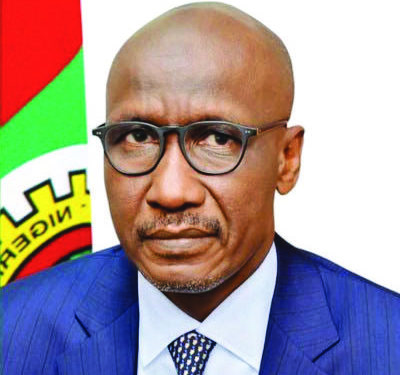
 The ongoing war between Russia and Ukraine may further prolong the over three-week scarcity of Premium Motor Spirit, popularly called petrol, in Nigeria, as bulk of the refined products coming into the country from the warring region and its adjoining areas are likely to face some delays.
The ongoing war between Russia and Ukraine may further prolong the over three-week scarcity of Premium Motor Spirit, popularly called petrol, in Nigeria, as bulk of the refined products coming into the country from the warring region and its adjoining areas are likely to face some delays.
It was also gathered on Sunday that traders who supply Nigeria with refined petroleum products might pause a little due to the deficit in the supply of crude oil cargoes from the Nigerian National Petroleum Company Limited.
NNPC brings in refined petrol into Nigeria using contractors or traders through its Direct Sale Direct Purchase scheme.
Under the scheme, the oil company provides crude oil to its trading partners, who in turn supply the NNPC with refined products worth the volume of crude received from the national oil company.
But impeccable sources both at the oil firm and among traders stated on Sunday that Nigeria through the NNPC had a deficit of about 17 cargoes in its DSDP obligation due to low oil production.
This, they said, could further prolong the fuel scarcity situation being faced nationwide, except something drastic such as the complete deregulation of the downstream oil sector was implemented.
They also noted that the Russia-Ukraine war might worsen the petrol supply situation in Nigeria as products could be hindered from leaving refineries in the region on schedule.
Nigeria imports its refined petroleum products, as its refineries are currently dormant.
“What we face now could be described as a perfect storm, which is when many things go wrong at the same time. We have a fundamental problem, but that problem happens at a time that other things happened and so it aggravates everything,” an oil trader with the NNPC, who pleaded not to be named due to the sensitive nature of the matter, stated.
The source added, “Now, Russia has attacked Ukraine. What is the impact of Russia’s attack of Ukraine on Nigeria? Russia is an oil-producing country, for Ukraine, our refined products come from that part of the world, not only Western Europe.
“So, the price has gone up because our refined products come from that part of the world and disturbances such as the one happening there will impact supply one way or the other.”
On concerns around DSDP and how it would further prolong petrol scarcity, another trader stated the continued theft of crude oil had impeded NNPC’s ability to settle its crude oil supply obligations to traders on schedule.
The source said, “Nigeria is assigned about 1.7 million barrels of crude oil production per day by OPEC, but its production is between 1.3 and 1.4 million barrels daily. But that is a different thing. Now, from the about 1.3 million barrels that the country produces daily, people are stealing from it.
“They are creating holes in pipelines and the ones that they steal are used in illegal refineries in Rivers State, causing soothe and dirt in peoples’ lungs. The other ones that they steal, they put in batches and go to the high sea to sell them.
The source added, “Now the NNPC brings in products through Direct Sale Direct Purchase of crude. Now I’m telling you that the NNPC owes traders crude oil under the DSDP scheme and you know why? It owes crude oil because people are stealing the crude and they don’t have enough crude to pay.
“So the NNPC owes the traders who bring them refined products. So when they (NNPC) say give me some more, the traders will reply by saying, but you are already owing, pay us. The NNPC cannot pay because people are stealing crude.
“This tells you that the petrol scarcity problems may continue if something drastic, particularly the deregulation of the downstream sector, is not done as soon as possible.”
When contacted, the spokesperson of NNPC, Garba-Deen Muhammad, asked our correspondent to send him a text or WhatsApp message on the matter. This was sent to him but he had yet to reply the messages up till the time of filing this report.
Tanker vessels’ freight rate, insurance premium rise
Meanwhile, the cost of shipping crude oil on super-sized tankers from the United States Gulf Coast to the United Kingdom and Asia surged after attacks on vessels in the Black Sea unleashed a risk-based premium into global shipping markets.
According to Bloombergquint.com report, tanker rates for so-called Very Large Crude Carriers that can carry about two million barrels of crude from the US Gulf Coast to the Asian market jumped to about $7m on Friday from $4.4m just three days ago, according to two shipbrokers familiar with the trades.
They also said that rates for booking vessels that carry oil to the European market rose to more than $2.75m from about $1.6m they said.
The higher costs may threaten US oil exports even as Brent crude’s premium to US oil futures is the biggest it has been since the early days of the pandemic.
Shipowners were already avoiding offering their vessels to collect crude from Russia while at least three merchant ships have been reportedly hit since Russian forces began the attack on its neighbour this last week.
Insurers are either not offering to cover vessels sailing into the Black Sea or they are demanding huge premiums to do so.
Meanwhile, fresh indications have emerged that the development has extended to the African market including Nigeria.
A former President of the Nigerian Indigenous Ship-Owners Association, Aminu Umar, confirmed it was now difficult for ships to sail through the Russia-Ukraine region and its adjoining areas due to the escalating tensions, noting that the area had since been classified as a war zone.
According to him, the situation may lead to a shortage of vessels as more ships avoid the regions.
“Some steel imports come from the Black Sea. Due to insecurity and war in Ukraine which you know is in the Black Sea, it is going to be difficult for ships to go there. The insurance world has classified the area as a war zone. So, many ships cannot go there anymore. No ship is allowed to go there until things are cleared, unless the owner of the vessel decides to take the risk directly, going without following advice from his insurance firm.”
As a result of the development, the expert said the situation had led to a major increase in freight rate.
Also, he said insurance premiums had gone up.
Umar said, “There may be a shortage in the number of vessels going to the Black Sea to ferry cargoes to Nigeria. Already, freight has skyrocketed in the Black Sea and the Mediterranean Sea. These are places we get cargoes that come to Nigeria. The development is going to affect the shipping world very significantly.
“Again, some vessels are already currently blocked in the Black Sea, they can’t come out. Also, some are going to face embargos and sanctions, which means they can’t trade in cargo. Any shipping company owned by a Russian or flying the Russian flag will be involved in this sanction. Consequently, a number of the vessels trading within the Black Sea and the Mediterranean will end not being able to carry cargo either to Europe, America or any of the African countries, because Nigeria is also following the United Nations sanction.”
Specifically, he said the freight rate on tanker vessels had gone up from $10,000 per day to $30, 000 per day, a few days into the war.
He added, “As at yesterday (Saturday) for tankers that are trading within the Mediterranean and Black seas, their freight rate has increased, they were doing like $10,000 per day, and now they are doing like $30, 000 a day. So, it is almost 300 per cent increase in freight and it is still going up. The vessel that will load cargo like steel from the Black Sea will now be facing a very high freight because only a few of the vessels can go there; I am talking about tankers, I have not got an update on the general cargos. Also, When they put you on a war risk zone, it means your insurance premium doubles immediately.
Also, the President, the Nigerian Association of Master Mariners, Tajudeen Alao, noted that crude oil prices had gone over $100 per barrel, adding that the Russia-Ukraine war lead to an increase in insurance and freight.
He listed the challenges as “war risk insurance on freight, increase in commodity prices such as wheat and energy in the European market. The multiplier effect affects export to third world. There will also be the introduction of extra charges. Fewer ship owners and crew will want to go to war zones.”
On his part, a shipping expert, Emmanuel Ilori, said the situation is a wake-up call for Nigeria on the need to be self sufficient, especially in the maritime sector.
“The only thing we can say for Nigeria shipping from this development is the need for Nigeria to be self-sufficient, the need for Nigeria to build its own national fleet and be sufficient in terms of the maritime resources. All of a sudden, sanctions have been imposed on Russia. But Russia is relatively maritime self-sufficient so they will be able to handle it.”
According to him, developing capacity in the maritime sector will reduce the country’s dependency on foreign countries.
“If Nigerian is still dependent on foreign countries for its shipping, any sudden development such as a sanction may throw the country out of balance. How are we going to survive as a nation? That is why we need to be self-sufficient in terms of shipping, technology, and all that. We need to develop our maritime sector in terms of technology and infrastructure,” he noted.
Ilori further advised the country to develop the capacity to train cadets, adding that the Maritime Academy of Nigeria in Oron should be upgraded to train more people.
brand
UBA Group Dominates 2025, Banker Awards, Emerges Africa’s Bank of the Year, For Third Time in Five Years
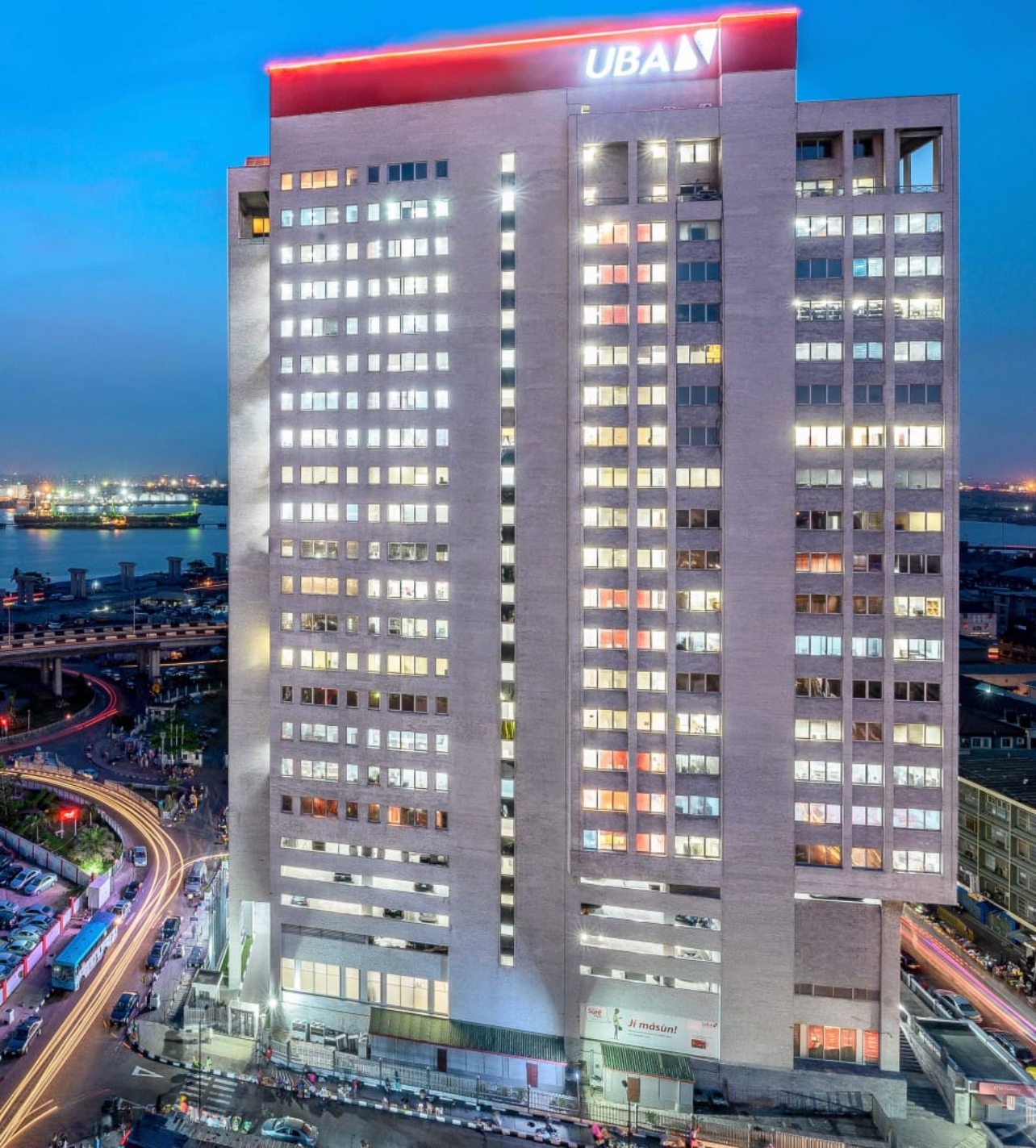
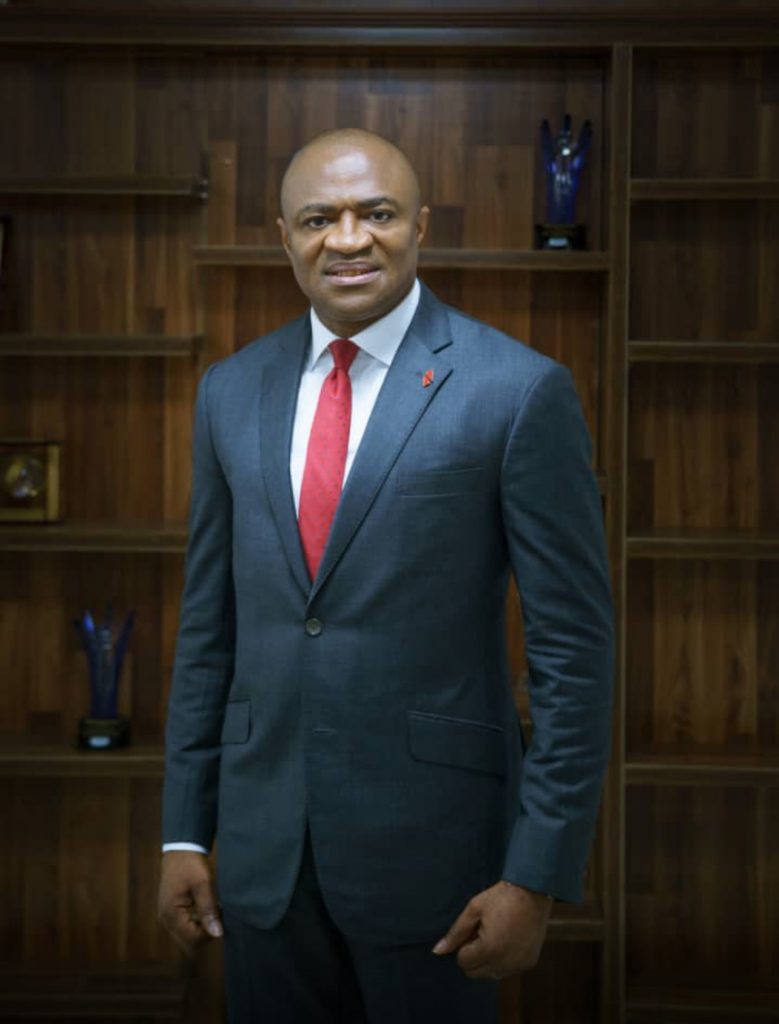
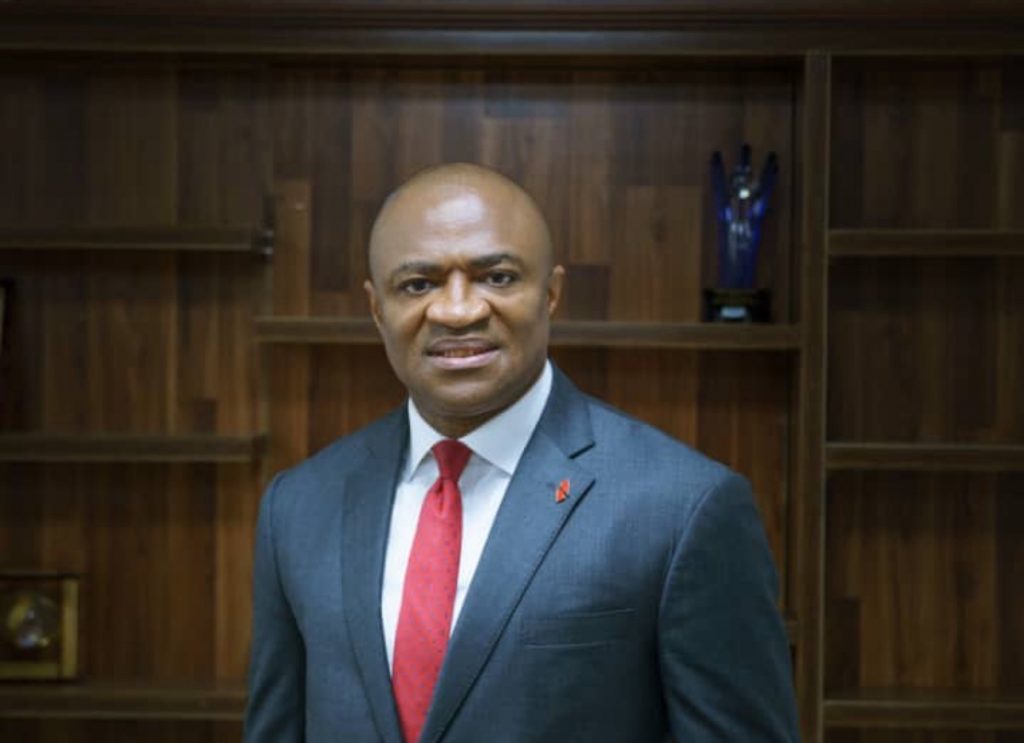 ….Wins Best Bank in Nine out of 20 African Subsidiaries
….Wins Best Bank in Nine out of 20 African Subsidiaries
Africa’s Global Bank, United Bank for Africa (UBA) Plc, has once again, reaffirmed its leadership as one of the continent’s most innovative and resilient financial institutions, as the bank has, for the third time in five years, been named the African Bank of the year 2025 by the Banker.com.
UBA also won the Best Bank of the Year awards in nine of its 20 African subsidiaries, bringing its total awards this year to ten as UBA Benin, UBA Chad, UBA Republic of Congo (Congo-Brazzaville), UBA Liberia, UBA Mali, UBA Mozambique, UBA Senegal, UBA Sierra Leone, and UBA Zambia, all came out tops as the best banks in their respective countries, underscoring the bank’s strength across West, Central and Southern Africa and highlighting the depth of its Pan-African franchise.
The Banker.com, a leading global finance news publication published by the Financial Times of London, organises the annual Bank of the Year Awards, and this year’s edition was held at a grand ceremony at the Peninsula, London, on Wednesday.
The Chief Executive Officer, UBA UK, Deji Adeyelure, received the awards on behalf of the bank, representing the Group Managing Director/CEO, Oliver Alawuba, and was accompanied by the bank’s Head Business Development, Mark Ifashe, and Head, Financial Institutions, Shilpam Jha.
The Banker’s awards are widely regarded as the most respected and rigorous in the global banking industry, celebrating institutions that demonstrate outstanding performance, innovation and strategic execution.
In its remarks on UBA’s winnings, the banker.com said, “For the third time in five years, UBA Group has won the coveted Bank of the Year award for Africa. UBA Group time after time punches above its weight against its larger African rivals. The bank this year also takes home nine separate country awards (one more than it gained for its last continental win in 2024), equivalent to around a quarter of the awards for the continent, and more than any of its continent-wide rivals.”
Continuing, it said, “Perhaps even more impressive is the fact that the awards were won across a broad geographic spread, going to lenders based in the Economic Community of West African States (Benin, Liberia, Senegal, Sierra Leone, and former member Mali), the Central African Economic and Monetary Community (Chad, Republic of Congo) and the Southern African Development Community (Mozambique, Zambia). Its award wins were particularly notable in the highly competitive categories for Benin and Mozambique.”
The Banker also highlighted UBA’s strong financial performance and commitment to future growth. In 2024, the Group recorded a 46.8 per cent increase in assets and a 6.1 per cent rise in pre-tax profits in local currency terms, while continuing to invest significantly in talent and technology. West Africa remains UBA’s heartland, with operating revenue and profit increasing by 87 per cent and 89 per cent respectively in H1 2025.
The bank’s digital and innovation leadership was equally recognised. During the year under review, and launched its Advance Top-Up buy-now-pay-later feature on the *919# USSD platform, expanding financial access for customers, while the bank’s chatbot Leo continued its strong growth trajectory, with transaction volumes rising by 29 per cent year-on-year in H1 2025. Notably, in August, Leo became the first African banking chatbot to enable cross-border payments via the Pan-African Payment and Settlement System (PAPSS).
UBA’s Group Managing Director/Chief Executive Officer, Oliver Alawuba, while reacting to the achievement, said the recognition affirms the bank’s long-term strategy and customer-first philosophy.
“This honour reflects the strength of our Pan-African network, the trust of our customers, and the dedication of our people. Winning Africa’s Bank of the Year for the third time in five years is not by chance; it is a testament to disciplined execution, innovation, and a deep understanding of the markets we serve,” Alawuba said.
“Our nine country awards across diverse regions of Africa show that UBA is not just growing, but growing with impact. We remain committed to driving financial inclusion, supporting economic development, and deploying technology that makes banking simpler, faster, and more accessible to Africans everywhere,” he added.
United Bank for Africa is one of the largest employers in the financial sector on the African continent, with 25,000 employees group-wide and serving over 45 million customers globally. Operating in twenty African countries, the United Kingdom, the United States of America, France and the United Arab Emirates, UBA provides retail, commercial and institutional banking services, leading financial inclusion and implementing cutting-edge technology.
brand
ZENITH BANK TECH FAIR 5.0 SPOTLIGHTS INNOVATION, AWARDS ₦140 MILLION CASH PRIZE TO HACKATHON WINNERS


L-R: Executive Vice President, CNN International Commercial, Phil Nelson; Founder & CEO, Beyond Limits Africa and Non-Executive Director, Zenith Bank, Dr. Juliet Ehimuan; Managing Director/CEO, NIBSS, Premier Oiwoh; Executive Director, Zenith Bank, Mrs. Adobi Nwapa; Founder & Chairman, Zenith Bank, Jim Ovia, CFR; Governor of Lagos State, Mr. Babajide Sanwo-Olu; Group Managing Director/CEO, Zenith Bank, Dame Dr. Adaora Umeoji, OON; Executive Director, Zenith Bank, Mr. Akin Ogunranti; Executive Director, Zenith Bank, Mr. Louis Odom; Executive Director, Zenith Bank, Mr. Adamu Lawani; and Director, Information Technology Infrastructure Solutions, NITDA, Mr. Oladejo Olawumi during the Zenith Bank Tech Fair Future Forward 5.0 held at the Eko Convention Centre, Eko Hotels & Suites, Victoria Island, Lagos, recently.
A total cash prize of ₦140 million has been awarded to ten (10) African innovators to scale their transformative solutions after a keenly contested hackathon and pitch session at the Fifth Edition of the Zenith Tech Fair, themed “Future Forward 5.0: Tech for Success – Innovate, Adapt, Accelerate”, which held on Thursday, November 20, 2025, at the Eko Convention Centre, Eko Hotels & Suites, Victoria Island, Lagos.The 2025 edition of the Zenith Tech Fair featured an expanded, dual-competition structure that included a high-stakes Hackathon for product development and a Startup Pitch Competition for early-stage ventures, and drew participation from thousands of developers, founders, and entrepreneurs across the continent.The prize money was shared among ten finalists who emerged from the over 2,000 contestants that took part in the Zecathon. In the hotly contested final, two major winners emerged, each receiving the top prize of ₦30 million. The winner of the Hackathon, Trust Loop, clinched first place for its innovative solution that delivers seamless digital KYC and liveness verification. Simultaneously, the winner of the Startup Pitch Competition, Cubbes Technologies Limited, secured the top spot for its revolutionary AI-powered EdTech platform that enhances learning and career readiness.The remaining eight (8) finalists across both categories were equally recognised, each receiving ₦10 million in non-dilutive funding. They include Venille Ltd, Sowota, FLOW, InvoPay, Zenith Intelliscore, The Very Hacked Men, Konfam and Zerax. All ten finalists will also be entitled to a six-week mentorship and incubation programme designed to help them grow and scale effectively, and this will run from December 2025 to February 2026.The Group Managing Director/CEO of Zenith Bank Plc, Dame Dr Adaora Umeoji, OON, in her welcome address, thanked the Founder & Chairman, Dr Jim Ovia, CFR, for the visionary foresight that led to the creation of the Zenith Tech Fair. Commenting on the Zecathon, she said, “Our theme this year, ‘Tech for Success: Innovate, Adapt, Accelerate’, is very timely. To appreciate its urgency, it helps to reflect on the speed of human progress. According to the Harvard Business Review, it took humanity millions of years to master fire, yet only 66 years to move from the first powered flight to landing on the moon. The lesson is simple – the next technological breakthrough will not take a lifetime. It will emerge sooner than we expect and could come from any one of you in this room today. We are confident that this Tech Fair will produce innovators who will change the world, and we stand ready to support you to turn your ideas into reality.”In his Goodwill Message, the Founder and Chairman of Zenith Bank Plc, Jim Ovia, CFR, said, “This fifth edition reflects our unwavering commitment to create value through technology, innovation, and talent development. My vision is to continue to empower the youth through technology, with the hope that one day we will produce the likes of Bill Gates, Steve Jobs and Jeff Bezos.”Whilst delivering his goodwill message, the Governor of Lagos State, His Excellency, Mr Babajide Sanwo-Olu, called for increased technological empowerment initiatives to provide youths with adequate opportunities needed to thrive in the digital future. He said, “What I see happening here every year are things that we in leadership need to connect with. This is an activation that can bring life and real conversation to the young, dynamic, innovative, and creative young people that we have in this country. By 2050, half of the youth population in the world will be in Africa, and even in Africa, they will be in Nigeria, and if they are in Nigeria,
they will be somewhere in Lagos, and we need to be able to fish them out. We need to give them an opportunity and a space to fly. We want to make Lagos the human capital centre of the world, where Microsoft and Google will think of raising a million tech experts. That’s the kind of vision and opportunity we want to leave behind.”Hailed as a resounding success by participants, the Fair showcased cutting-edge demonstrations on the role of Generative AI, Agentic AI, and Cloud Computing in driving economic growth with Keynote addresses delivered by Sitoyo Lopokoiyit, Managing Director, M-PESA Africa; Jonas Kjellberg, Co-Creator, Skype and Dr. Shivagami Gugan, Chief Technologist for Middle East, Turkey and Africa, AWS.The event also featured goodwill messages by the National Commissioner, Nigeria Data Protection Commission, Dr. Vincent Olatunji, and the Governor of Niger State, His Excellency, Governor Mohammed Umaru Bago, ably represented by the Head of Service, Niger State, Mr. Abubakar Sadiq Idris.Another key feature from the tech fair this year was the robust exclusive masterclasses delivered by global technology and consulting powerhouses: McKinsey & Company, Huawei, Check Point, and Microsoft. These sessions covered critical topics from cybersecurity to advanced cloud solutions and disruptive technologies, equipping participants with world-class insights.Aside from the thrilling musical performance by Nigerian musician Spyro, the fair also featured dual-panel sessions that were very insightful and highly interactive. The panel sessions both had Zain Asher, CNN Anchor, as host, and featured high-level discussants including Adaora Nwodo, Founder & Executive Director, NexaScale; Aisha Tofa, Board Chair, Startup Kano Centre for Innovation Dev.; David Kpakima, Co-Founder, Rasab Group, Sierra Leone; Dr Stanley Jacob, President, FINTECHNGR; Iyinoluwa S. Aboyeji, CEO Future Africa; Gary Fowler, CEO & Founder GSD Venture Studios; Bradwin Roper, Chief Payments & Partnerships Officer at JUMO, and Mrs. Omoyemen A. Jide-Samuel, Director, Information Technology, CBN.Zenith Bank remains committed to fostering an ecosystem where innovation thrives, ensuring that the next generation of African tech leaders have the capital, mentorship, and resources required to achieve global scalability and impact.The Bank’s track record of excellent performance has continued to earn the brand numerous awards, including being recognised as the Number One Bank in Nigeria by Tier-1 Capital for the sixteenth consecutive year in the 2025 Top 1000 World Banks Ranking, published by The Banker and “Nigeria’s Best Bank” at the Euromoney Awards for Excellence 2025. The Bank was also awarded Bank of the Year (Nigeria) in The Banker’s Bank of the Year Awards for 2020, 2022 and 2024; Best Bank in Nigeria from 2020 to 2022, 2024 and 2025, in the Global Finance World’s Best Banks Awards; Best Bank for Digital Solutions in Nigeria in the Euromoney Awards 2023; and was listed in the World Finance Top 100 Global Companies in 2023.Further recognitions include Best Commercial Bank, Nigeria for five consecutive years from 2021 to 2025 in the World Finance Banking Awards and Most Sustainable Bank, Nigeria in the International Banker 2023 and 2024 Banking Awards. Additionally, Zenith Bank has been acknowledged as the Best Corporate Governance Bank, Nigeria, in the World Finance Corporate Governance Awards for four consecutive years from 2022 to 2025 and ‘Best in Corporate Governance’ Financial Services’ Africa for four consecutive years from 2020 to 2023 by the Ethical Boardroom
The Bank’s commitment to excellence led to Zenith being also named the Most Valuable Banking Brand in Nigeria in The Banker’s Top 500 Banking Brands for 2020 and 2021, Bank of the Year 2023 to 2025 at the BusinessDay Banks and Other Financial Institutions (BAFI) Awards, and Retail Bank of the Year for three consecutive years from 2020 to 2022 and 2024 to 2025. The Bank also received the accolades of Best Commercial Bank, Nigeria and Best Innovation in Retail Banking, Nigeria, in the International Banker 2022 Banking Awards, Bank of the Year 2024 by ThisDay Newspaper; Bank of the Year 2024 by New Telegraph Newspaper; and Best in MSME Trade Finance, 2023 by Nairametrics. The Bank’s Hybrid Offer was also adjudged ‘Rights Issue/ Public Offer of the Year at the Nairametrics Capital Market Choice Awards 2025.Zenith Bank has also bagged several non-financial awards, including Most Responsible Organisation in Africa, Best Company in Transparency and Reporting and Best Company in Gender Equality and Women Empowerment at the SERAS CSR Awards Africa 2024
brand
ZENITH BANK’S GROSS EARNINGS SURGE 16% TO N3.4TN, AS PBT HITS N917.4BN IN Q3 2025
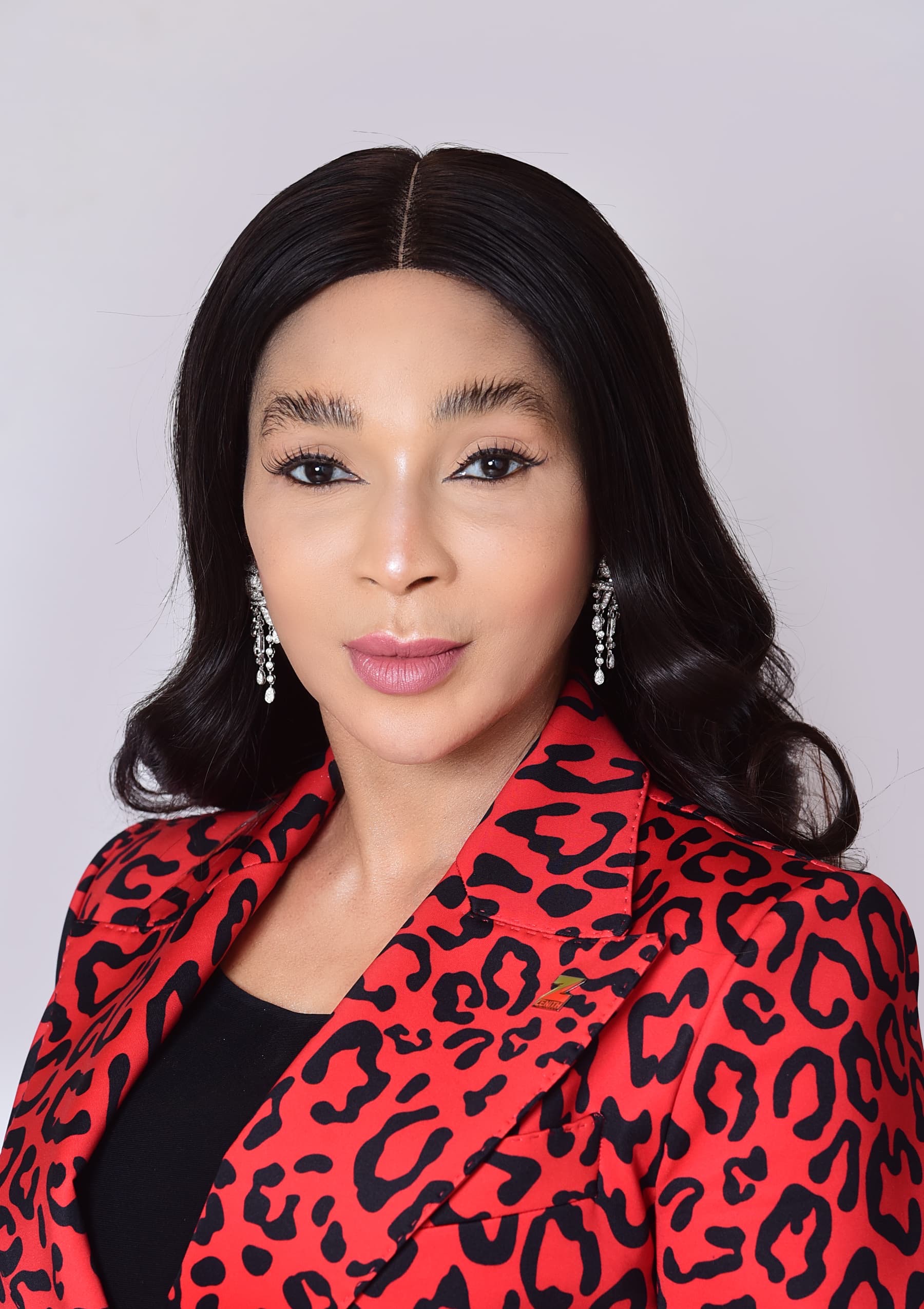
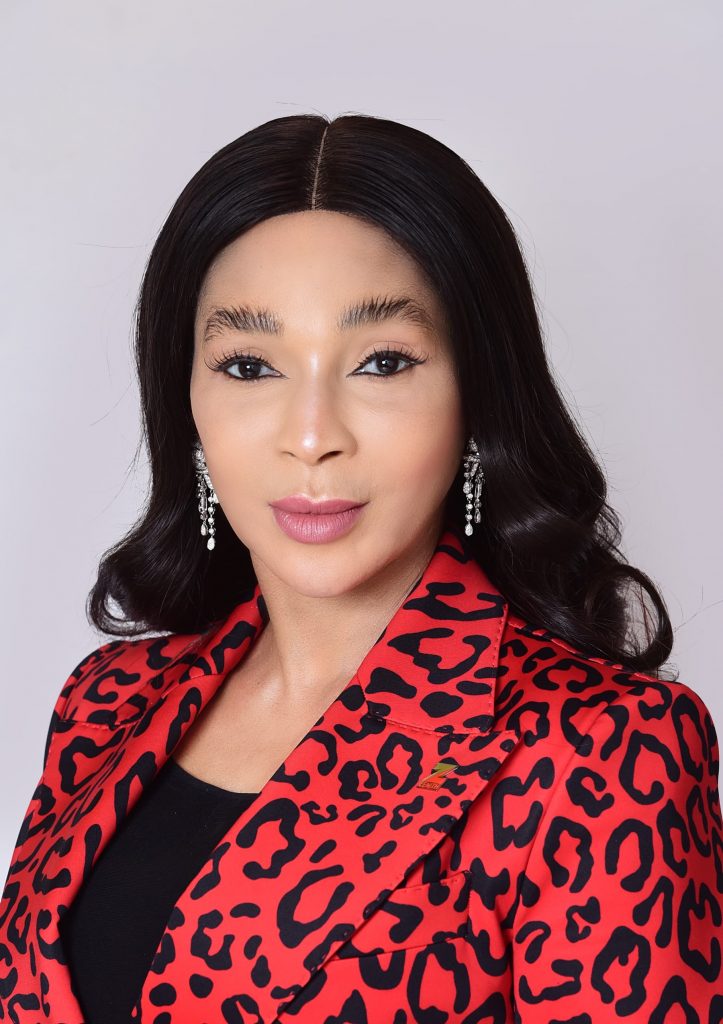
Zenith Bank Plc has released its unaudited financial results for the nine months ended 30 September 2025, with a remarkable 16% year-on-year growth in gross earnings from N2.9 trillion recorded in Q3 2024 to N3.4 trillion in Q3 2025. The Group’s performance continues to demonstrate resilience, strong momentum, disciplined execution and an ability to deliver long-term shareholder value in spite of challenging macroeconomic environment.According to the financial results presented to the Nigerian Exchange (NGX), the growth in gross earnings was driven by a sustained growth in interest income which grew by 41% year-on-year to N2.7 trillion. The growth in interest income was supported by a high-yield rate environment and an expansion in the Bank’s investment portfolio. Despite the increase in interest expense by 22% to N814 billion on the back of a tightening monetary cycle and a growth in the Bank’s funding base, the Bank was able to achieve a healthy Net Interest Margin (NIM) of 12% as against 10% in September 2024. Non-interest income declined by 38% to N535 billion, underpinned by a 60% decline in trading gains.Profitability remained strong, with profit before tax at N917 billion as against N1.00 trillion reported in September 2024. Profit after tax also declined by 8% to N764 billion and Earnings Per Share (EPS) came in at N18.60 as against N26.34 in September 2024, as the Bank took bold measures to improve the quality of its loan portfolio.The Bank’s total assets grew by 4% from N30 trillion in December 2024 to N31 trillion as at September 2025. This was largely supported by customer deposits, which rose by 8% to N23.7 trillion within the same period. Gross loans declined by 9% to N10 trillion as at September 2025, while Non-Performing Loan (NPL) ratio improved to 3% due to the write-off of non-performing loans.Return on Average Equity (ROAE) and Return on Average Assets (ROAA) stood at 23.3% and 3.3% respectively. Cost of funds increased to 4.5%, underscored by the broader elevated interest rate environment. The Group’s cost of risk stood at 10% while cost-to-income ratio rose to 45%.Coverage ratio and liquidity ratio remain solid and well within regulatory limits at 211.1% and 53% respectively. This highlights the Bank’s strong capital position and liquidity profile as well as its ability to fund strategic growth opportunities. It also reflects its unwavering commitment to a prudent risk management, compliance and corporate governance culture. Commenting on the results, the Group Managing Director/CEO, Dame Dr. Adaora Umeoji, OON, said: “the Bank’s robust performance is an attestation to the resilience of the Zenith brand, result-driven strategy, and the adaptability of our people in an evolving operating environment. We have fortified our capital base, reset our asset quality, and are well positioned for sustainable and profitable growth”.Looking to Q4 2025, Dame Dr. Umeoji reinforced her optimistic outlook: “This result confirms the resilience of both our business model and our people. We’re on a solid growth path that we expect to maintain through the remainder of the year. Our focus on innovation, digital transformation, and developing solutions that address our clients’ changing needs positions us to capitalise on emerging .
opportunities whilst maintaining our disciplined approach to growth.” She assured shareholders that the robust performance, combined with improved asset quality and the Bank’s strong capital base, positions Zenith Bank to deliver exceptional returns with expectations of sustained value creation. “We’re well placed to sustain this momentum whilst maintaining responsible leadership in the Nigerian banking industry and delivering exceptional value to all our stakeholders.”The Bank’s track record of excellent performance has continued to earn the brand numerous awards, including being recognised as the Number One Bank in Nigeria by Tier-1 Capital for the sixteenth consecutive year in the 2025 Top 1000 World Banks Ranking, published by The Banker and “Nigeria’s Best Bank” at the Euromoney Awards for Excellence 2025. The Bank was also awarded Bank of the Year (Nigeria) in The Banker’s Bank of the Year Awards for 2020, 2022 and 2024; Best Bank in Nigeria from 2020 to 2022, 2024 and 2025, in the Global Finance World’s Best Banks Awards; Best Bank for Digital Solutions in Nigeria in the Euromoney Awards 2023; and was listed in the World Finance Top 100 Global Companies in 2023.Further recognitions include Best Commercial Bank, Nigeria for five consecutive years from 2021 to 2025 in the World Finance Banking Awards and Most Sustainable Bank, Nigeria in the International Banker 2023 and 2024 Banking Awards. Additionally, Zenith Bank has been acknowledged as the Best Corporate Governance Bank, Nigeria, in the World Finance Corporate Governance Awards for four consecutive years from 2022 to 2025 and ‘Best in Corporate Governance’ Financial Services’ Africa for four consecutive years from 2020 to 2023 by the Ethical Boardroom.The Bank’s commitment to excellence led to Zenith being also being named the Most Valuable Banking Brand in Nigeria in The Banker’s Top 500 Banking Brands for 2020 and 2021, Bank of the Year 2023 to 2025 at the BusinessDay Banks and Other Financial Institutions (BAFI) Awards, and Retail Bank of the Year for three consecutive years from 2020 to 2022 and 2024 to 2025. The Bank also received the accolades of Best Commercial Bank, Nigeria and Best Innovation in Retail Banking, Nigeria, in the International Banker 2022 Banking Awards, Bank of the Year 2024 by ThisDay Newspaper; Bank of the Year 2024 by New Telegraph Newspaper; and Best in MSME Trade Finance, 2023 by Nairametrics. The Bank’s Hybrid Offer was also adjudged ‘Rights Issue/ Public Offer of the Year at the Nairametrics Capital Market Choice Awards 2025.Zenith Bank has also bagged several non-financial awards including, Most Responsible Organisation in Africa, Best Company in Transparency and Reporting and Best Company in Gender Equality and Women Empowerment at the SERAS CSR Awards Africa 2024.
-

 news5 years ago
news5 years agoUPDATE: #ENDSARS: CCTV footage of Lekki shootings intact – Says Sanwo – Olu
-

 lifestyle5 years ago
lifestyle5 years agoFormer Miss World: Mixed reactions trail Agbani Darego’s looks
-

 health5 years ago
health5 years agoChairman Agege LG, Ganiyu Egunjobi Receives Covid-19 Vaccines
-

 lifestyle4 years ago
lifestyle4 years agoObateru: Celebrating a Quintessential PR Man at 60
-

 health5 years ago
health5 years agoUPDATE : Nigeria Records 790 new cases of COVID-19
-

 health6 years ago
health6 years agoBREAKING: Nigeria confirms 663 new cases of COVID-19
-

 entertainment11 months ago
entertainment11 months agoAshny Set for Valentine Special and new Album ‘ Femme Fatale’
-

 news7 months ago
news7 months agoBREAKING: Tinubu swears in new NNPCL Board


